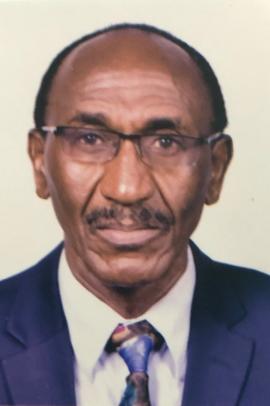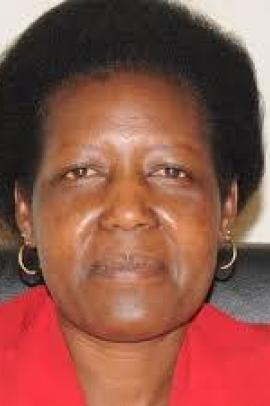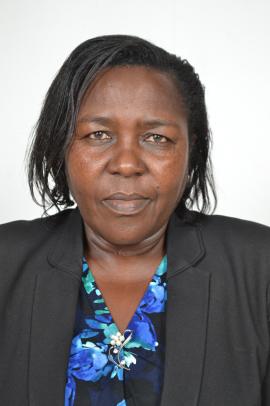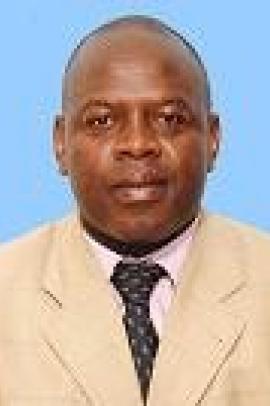Biography: Thomas Machemba Mwasshighi
Thomas Mwashighi was born on 20th October 1979 in Kajiado County. His parents Paula Mkanyika and Pius Mwashighi were farmers in the area. Thomas grew up in Magadi ward, Kajiado West, where his parents settled. He attended Entasopia primary school and completed in 1992 with a total of 408 marks out of 700.
He joined Magadi secondary school where he completed in 1996 and scored a B (Plain).
He joined Egerton University in 1998 where he studied Agricultural Engineering – Majored in soil and water. He graduated in 2004 with a bachelor’s degree second class lower division. Thomas is married to Caroline Keleda and blessed with 3 children: Ray, Roy and Esleen.
As a university student, he was engaged in engineering activities and became a member engineering.
Thomas has worked with private sectors, NGOs and Government institutions which include: Danana secondary school as a teacher, Caritus Meru as a livelihoods project technical coordinator, World Vision as livelihoods and resilience project Technical Officer, National Drought Management Authority as a County livelihoods and resilience project coordinator and CISP as a Livelihoods Officer. I He excellent skills in Planning, Budgeting, coordination, monitoring and evaluation of various aspects of livelihoods, resilience and food security activities as well as budget tracking.
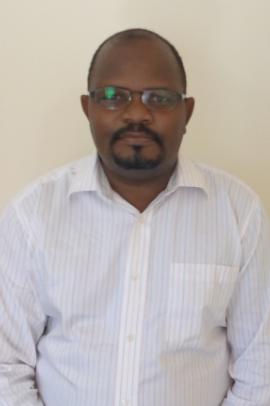
Thesis / Project Title
INFLUENCE OF WOMEN PARTICIPATION ON IMPLEMENTATION OF FOOD SECURITY PROJECTS: A CASE OF CASH FOR ASSETS PROJECT IN KASIGAU WARD, TAITA TAVETA COUNTY, KENYA.
Thesis / Project Abstract
Food security projects has ever been implemented in Kenya especially in the arid and semi-arid lands and many other parts of the world. Women participation to the projects has been prioritised by all interested agencies. However, women participation has not been fully utilised to realise the outcomes of the food security projects. This paper examines the influence of women participation on implementation of food security projects in Kasigau Ward, Taita Taveta County, Kenya. The study focuses on women participation in assets creation, decision making, capacity building and resource mobilization as predictor variables and implementation of food security projects as dependent variable. The study was guided by theories of structural functionalism and Moser’s (1986) tool for gender analysis. A descriptive survey research design was used to achieve the study’s objectives by which both structured closed and open-ended questionnaire and document review were used to collect data from the respondents based on the objectives of the study. The target population of this study was the 1297 CFAP beneficiaries in Kasigau Ward. The study adopted the sampling formula advanced by Yamane (1967) to obtain a representative sample size of 93 respondents. The analysis utilized Statistical Package for Social Sciences (SPSS) version 25 software which facilitated all computations and outputs for interpretation by the study. Descriptive data was analyzed using frequencies, percentages, arithmetic mean, and standard deviation while inferential data was analyzed using Pearson’s correlations and simple regressions. The study established that, assets creation, decision making, capacity building and resource mobilization significantly contributed positively to the implementation of food security projects as explained by the relationship ([r(91)=0.408;P(0.000) < α (0.05)], [r(91)=0.500;P(0.000)< α (0.05)], [r(91)=0.627; P (0.000) < α (0.05)], and [r(97)=0.318; P (0.002) < α (0.05) ]) respectively. When testing the hypotheses, the findings revealed that, assets creation [β=0.352; t=4.262; P (0.000) <0.05], decision making [β = 0.437; t=5.504; P (0.00) < 0.05], capacity building [β = 0.577; t=7.680; P (0.00) < 0.05], and resource mobilization [β = 0.216; t=3.196; P (0.002) < 0.05] significantly influenced implementation of food security projects. The study recommended among others that; Women should be provided with more avenues to promote success of food security projects.
Student’s Google scholar link
(affiliated to student’s university email)
Other relevant academic links
Research Supervisors
Dr. Solomon Mburunga
Dr. Anthony Ndungu


